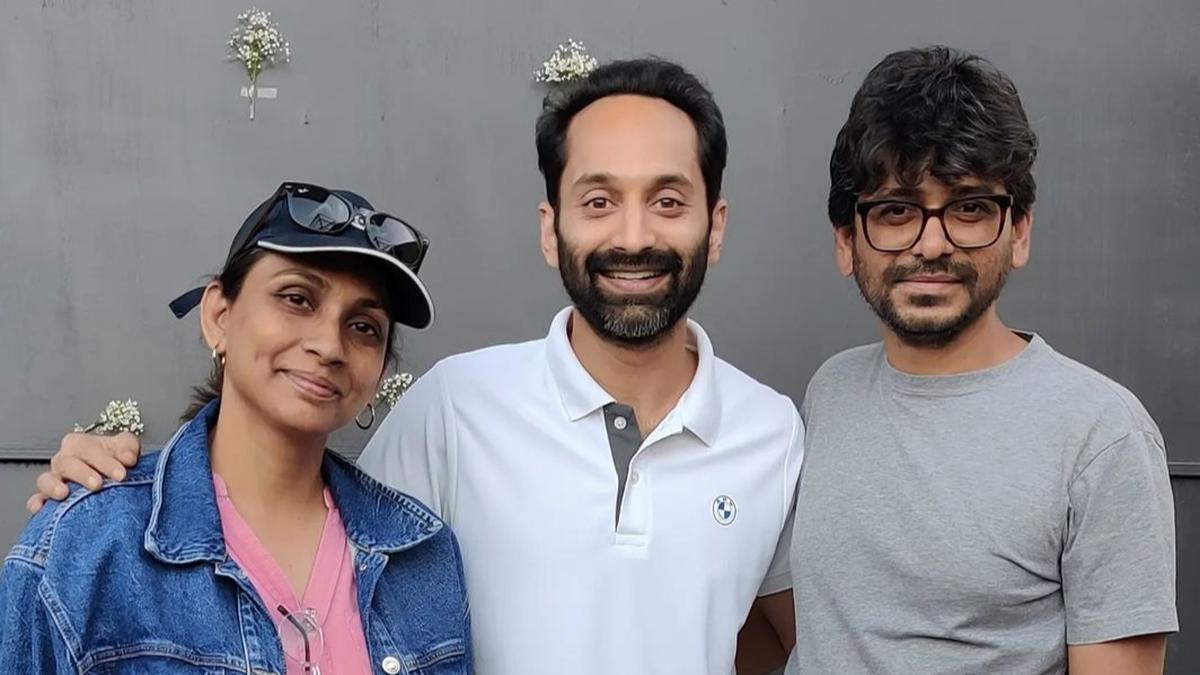
Director Pawan Kumar on how ‘Dhoomam’ almost went up in smokes before a grand revival with Fahadh Faasil
The Hindu
Filmmaker Pawan Kumar talks about his upcoming Malayalam film ‘Dhoomam’, the challenges of finding a producer and a hero for a high-concept movie, and working with Fahadh Faasil
In 15 years, director Pawan Kumar has gone from ideating a project close to his heart to almost shelving it for good to finally completing it with a dream team. C10H14N2 was born as a Kannada film in 2008. On June 23, the story will come alive on screen as Dhoomam, a Malayalam suspense thriller also dubbed in four languages.
“I know that the original title is an emotion for cine buffs in Karnataka. That said, when you make a big film with popular actors and a huge production house, its title must be easy to remember and pronounce. If I say C10H14N2, it feels like another Lucia kind of an attempt, where I independently go and do bizarre stuff,” Pawan says with a chuckle.
The trailer of Dhoomam doesn’t give away much except that the film revolves around smoking. Pawan is known for his mind-bending storytelling (Lucia, U Turn) with technical nuances. “I want people to see beyond my style and think about the plot’s core theme,” he says.
Anurag Kashyap is a director he looks up to. Interestingly, the dismal performance of Anurag’s No Smoking became a deterrent to Pawan’s bid to make this film as producers were apprehensive about another film on smoking. After several rejections from stars and producers in Kannada and other industries, Pawan has successfully finished this film with a dream team, comprising actors Fahadh Faasil, Roshan Mathew, Aparna Balamurali, Achyuth Kumar and production house Hombale Films, the makers of the KGF franchise and Kantara.
Excerpts from an interview with Pawan:
How does one start to smoke? That’s something I was curious about. Sometimes, you sympathise with the person who smokes because I don’t think any smoker proudly says he is happy doing it. Deep down, all smokers want to quit. But, the habit has taken over them so much that they start defending it. I didn’t want to demonise them.
When you make a film only about smoking, it might not work. Of course, Thank You for Smoking was for a niche audience; it was a dark comedy, and I loved that film. However, I didn’t want to make a film that does amazingly well in festivals. The thought behind my film had to reach the masses. I intend to offer people an engaging experience, and yet, when they come out of theatres, I want them to think about the core elements of the film.





















 Run 3 Space | Play Space Running Game
Run 3 Space | Play Space Running Game Traffic Jam 3D | Online Racing Game
Traffic Jam 3D | Online Racing Game Duck Hunt | Play Old Classic Game
Duck Hunt | Play Old Classic Game











